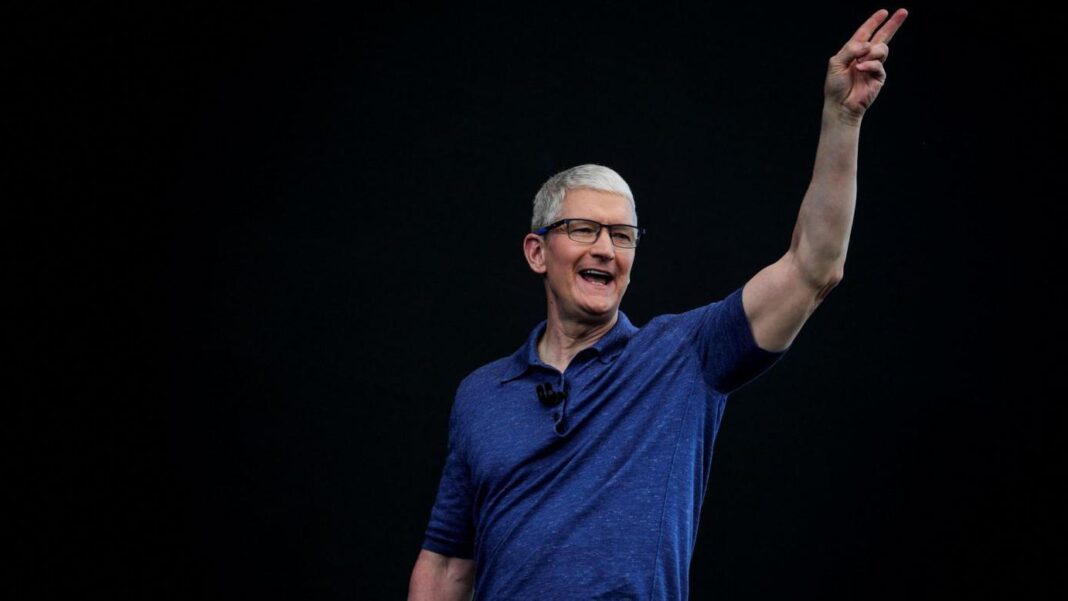BTN News: In a bold move to catch up in the artificial intelligence (AI) race, Apple has announced a major overhaul of its voice assistant, Siri, by integrating OpenAI’s ChatGPT. Unveiled at its annual developer conference in Cupertino, California, Apple plans to roll out this significant upgrade as part of a new AI initiative called “Apple Intelligence.” The integration aims to provide a more seamless user experience across all Apple devices, from iPhones to Macs. As AI continues to dominate the tech landscape, Apple’s partnership with OpenAI marks a crucial step in its strategy to regain market relevance and reassure investors.
Apple Intelligence: A New Era for Siri and User Experience
Apple Intelligence, a newly introduced AI framework, promises to revolutionize how users interact with their devices. Unlike a standalone product or app, this system will enhance various Apple services, such as providing smarter route suggestions for appointments or refining message drafts. The most notable change comes with Siri, which will now feature a more conversational interface, designed to help users navigate Apple’s ecosystem more intuitively.
This AI-powered upgrade is similar to Microsoft’s AI Copilot, but with a key difference — Apple Intelligence will be available to all users without an extra fee. The approach reflects Apple’s commitment to integrating advanced technologies while maintaining its reputation for user-friendly experiences.
Privacy First: How Apple Plans to Protect User Data
Amid concerns over data security, Apple emphasized the privacy measures embedded in Apple Intelligence. The company stated that a portion of the AI processing would be conducted on the device itself, while more complex tasks would be handled in the cloud without storing user data. This approach aligns with Apple’s longstanding promise of user privacy and may help it stand out in a market where data protection is increasingly scrutinized.
Craig Federighi, Apple’s Senior Vice President of Software Engineering, reassured customers by stating, “Our new system integrates powerful generative models into the heart of your iPhone, iPad, and Mac. It leverages personal context to provide useful and relevant information while safeguarding your privacy at every step.”
The Market Reaction: Musk Criticizes, Investors Watch Closely
The announcement did not come without controversy. Elon Musk, CEO of Tesla and owner of X (formerly Twitter), quickly voiced his concerns, suggesting that Apple’s partnership with OpenAI could jeopardize user data security. “Apple has no idea what really happens once they hand over data to OpenAI,” Musk posted on X. “They are selling you out.”
Despite Musk’s criticism, the move is seen by some analysts as necessary for Apple to remain competitive in an AI-driven market. Ben Wood, Chief Analyst at CCS Insight, suggested that while the integration of ChatGPT may be a sign of Apple acknowledging its limitations, it could also be a smart move to appease worried investors. “It arguably shows that Apple admits its limitations, given that ChatGPT steps in where Siri can no longer assist a user,” Wood noted.
Pressure from Competitors: Apple Strives to Keep Up in the AI Race
Apple’s push into AI comes after months of pressure to introduce new AI capabilities in its products. The tech giant has lagged behind competitors like Microsoft and Google, who have already made significant strides in integrating AI across their platforms. Apple’s value was surpassed by both Microsoft in January and Nvidia, a leader in AI software and chip manufacturing, in June.
Apple CEO Tim Cook addressed these challenges head-on during the conference, expressing confidence that the AI initiatives would “take Apple’s products to new heights.” Cook’s remarks underscore Apple’s recognition of the need to innovate rapidly to maintain its position in a fiercely competitive market.
Future Expansion: Beyond ChatGPT, What’s Next for Apple?
While the current focus is on integrating ChatGPT, Apple hinted at the possibility of incorporating additional AI tools in the future. However, details on which products might benefit from further enhancements were not disclosed. This strategic ambiguity leaves room for speculation about what other AI-driven features Apple might unveil.
Meanwhile, Apple also announced that its mixed reality headset, Vision Pro, will hit the UK market on July 12, following its US release in February. This suggests a broader vision for integrating AI across multiple platforms, extending beyond traditional devices.
New Features: From Satellite Messaging to Enhanced Security
Beyond AI integration, Apple revealed several other notable updates aimed at improving user experience:
- Satellite Text Messaging: Users can now send text messages via satellite, enhancing communication in remote areas.
- Scheduled Messaging: Allows users to program messages for later delivery.
- AirPods Gesture Control: New head gestures, like nodding or shaking, can now control AirPods Pro.
- Password Management App: A dedicated app to manage passwords across all Apple devices.
- Enhanced App Security: Options to hide or lock apps with passwords or Face ID.
These updates reflect Apple’s ongoing commitment to innovation, even as it pivots more strongly toward AI.
Conclusion: A High-Stakes Bet on AI and the Future of Technology
Apple’s integration of ChatGPT into Siri and its broader AI strategy marks a significant pivot for the company. As AI continues to reshape the tech landscape, Apple’s collaboration with OpenAI could either prove to be a masterstroke that propels the company to new heights or a risky gamble fraught with privacy concerns and fierce competition. Whatever the outcome, Apple’s move signals a definitive commitment to AI, ensuring it remains a key player in the ongoing technological evolution.


